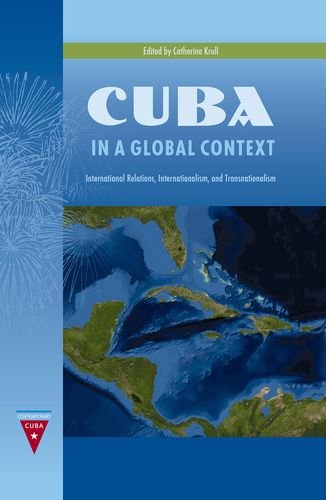

Most ebook files are in PDF format, so you can easily read them using various software such as Foxit Reader or directly on the Google Chrome browser.
Some ebook files are released by publishers in other formats such as .awz, .mobi, .epub, .fb2, etc. You may need to install specific software to read these formats on mobile/PC, such as Calibre.
Please read the tutorial at this link: https://ebookbell.com/faq
We offer FREE conversion to the popular formats you request; however, this may take some time. Therefore, right after payment, please email us, and we will try to provide the service as quickly as possible.
For some exceptional file formats or broken links (if any), please refrain from opening any disputes. Instead, email us first, and we will try to assist within a maximum of 6 hours.
EbookBell Team

5.0
60 reviews“Krull has assembled an impressive array of international scholars to examine Cuba’s impact on international relations.”—Mervyn Bain, author of Russian-Cuban Relations since 1992
“An anthology of insightful essays that outruns the information blockade on Cuba.”—Ricardo A. Dello Buono, coeditor of Cuba in the Twenty-First Century
There is a great deal more to Cuba’s place on the global stage than its contentious relationship with the United States. Taking a refreshing look at Cuban international relations, contributors to this volume from both inside and outside the island explore the myriad ways in which it has not only maintained but often increased its reach and influence. In Latin America, Europe, Africa, and Asia, Cuba has assumed a geopolitical role of unlikely prominence.
Even in the face of the ongoing U.S. embargo, Cubans have seen improvement in the quality of their lives. Shedding new light on Cuban diplomacy with communist China as well as with Western governments such as Great Britain and Canada, these essays reveal how the promotion of increased economic and political cooperation between Cuba and Venezuela served as a catalyst for the Petrocaribe group. Links established with countries in the Caribbean and Central America have increased tourism, medical diplomacy, and food sovereignty across the region. Cuban transnationalism has also succeeded in creating people-to-people contacts involving those who have remained on the island and members of the Cuban diaspora.
While the specifics of Cuba’s international relations are likely to change as new leaders take over, the role of Cubans working to assert their sovereignty has undoubtedly, as this volume demonstrates, impacted every corner of the globe. Cuba’s domestic and political successes may even serve as models for other developing countries.